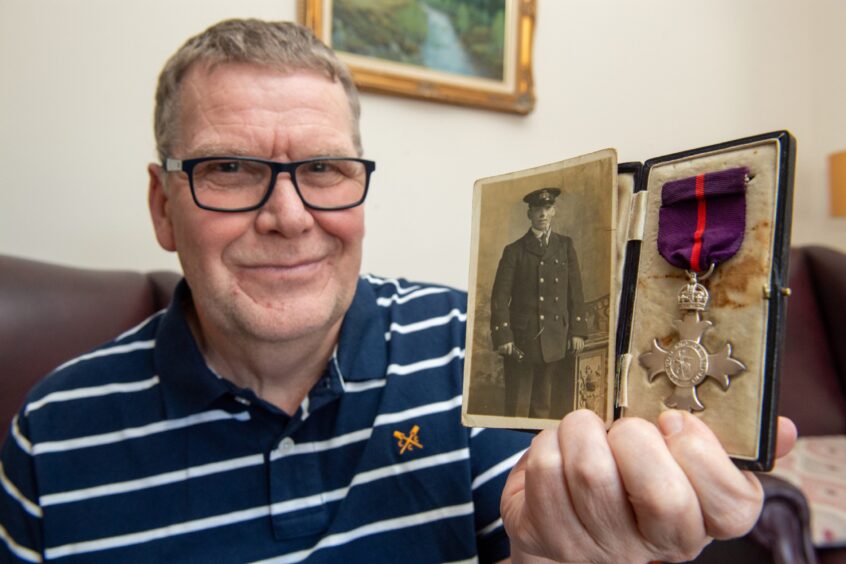
The story of a heroic Peterhead fisherman’s actions during WW1 which involved using his trawler to clear enemy mines has been uncovered after years of mystery.
Robert Buchan was a Peterhead skipper during the outbreak of the First World War.
During the war, he earned a multitude of commendations such as a Distinguished Service Cross (DSC) and an MBE, yet his actions which earned these awards remained unknown until new amateur research uncovered the truth.
This is the story of how Robert went from being a skipper in Peterhead, to a minesweeping war hero.
Robert’s early days in Peterhead and career in fishing, and new purpose when war broke out
The late Robert Buchan’s story started on the 12th of November 1889 with his birth into a big Peterhead family. He was raised by his father, Joseph – a fisherman who died young – and his mother Mary.
Robert went on to follow in his father’s footsteps by becoming a fisherman, and earned his Skippers ticket in 1912, at the age of 22.
Before war broke out, he lived at Balmoor Terrace.
After Britain entered WW1, the Royal Navy requisitioned many fishing trawlers and drifters for the war effort, which included a large amount of the north’s fishing fleet — and Robert’s.
Ships from Aberdeen, Peterhead, Fraserburgh and Buckie made up a large part of Auxiliary Patrol, who were tasked with minesweeping efforts and taking out the unseen threat of enemy submarines.
And this is where the late Robert’s first distinguishment was revealed by records recently uncovered by his family, through his service in the Auxiliary Patrol.
A report revealed he received a Distinguished Service Cross (DSC) for “All round good work, minesweeping and patrol”.
Report on Robert revealed how many mines he destroyed — and submarines he caught
The report goes on further and says that he destroyed 45 enemy mines on the seabed, and also caught a submarine through his nets. Not the exact type of catch Robert would have expected before the war.
Roberts Grandson, who shares his name, had uncovered the story of the DSC on a visit to The Archives Collection at Kew Gardens in London, yet nothing could be found on the mystery MBE which remained in Robert’s collection, other than hints from letters and newspaper clippings that mentioned his actions in the Adriatic.
Now, thanks to extensive trawling (of the non-nautical variety) through naval archives and letters, the story of the late Robert’s medal worthy actions has been pieced together.
The first piece comes in the form of a letter from Captain Gilbert Owen Stephenson, a well decorated officer who served in both World Wars.
The letter dated 25 September 1919, commends the late Robert for “excellent services in the Otranto Mobile Barrage Force.”
Letter reveals Peterhead fisherman’s bravery in the Adriatic, and rise to leadership
The story of the Otranto Mobile Barrage force is one of great bravery from those who served in trawlers and drifters, whilst being out-resourced and out-numbered.
The Strait of Otranto is located at the narrowest point in the Adriatic between Italy and Albania, and was a key location for the Austro-Hungarian navy as the bottleneck for ships entering the Mediterranean.
During the Otranto Campaign, the British forces used trawlers and drifters to create a blockade using nets to deny enemy submarines access to the Mediterranean.
These trawlers and drifters were often attacked by much larger Austro-Hungarian cruisers and submarines, and despite brave efforts, the blockade itself was deemed unsuccessful, being called a “large sieve through which U-boats could pass with impunity” by military historian H.P. Willmott.
However, across the board the brave fishermen from the north-east and across the UK were commended for their bravery in the face of imminent danger and stood their ground against a better-equipped force.
And this sentiment is attributed to Robert Buchan, whose MBE was awarded for actions within this force as a chief skipper, in command of a fleet of 5-6 drifters at just the age of 28 years old.
Naval records reveal that he was recommended for an MBE as he “stood head and shoulders above his fellow skippers in intelligence,… and ability to command”.
“On several occasions in the absence of his divisional leaders, he took charge of a division of drifters and by his consistently good work and his seamanship, raised the whole standard of his division”.
When Robert was made MBE, he was praised for bringing credit to Peterhead
The late Robert was presented with his MBE by Provost Catto in his office, and a newspaper clipping from the time read that the medal was “worthily won for service for King and country in the Adriatic during the great war.”
The article continued that Lord Catto “earnestly trusted that Mr Buchan would be long spared to prize and wear the decoration with pride and honour to himself and family. The dignity conferred on Skipper Buchan by command of His Majesty the King brought not only credit to himself but to the town”.
It closed off in commending the work of Scottish fishermen across the conflict by saying the award “proved the importance of the work performed by their hardy Scottish fishermen in whatever sphere they were placed, and their courage and tenacity of purpose to win the war against all the dangers to be faced from the most dreadful enemy the world has yet known”.
Robert’s grandson is proud his grandfather’s story has been told
After this fantastic discovery, the late Robert’s grandson couldn’t be prouder of his relatives’ achievements.
Robert said: “It’s been very, very, very enlightening. Just the fact we’ve managed to piece the story together, that’s really good.

“His story has never been told. As a family we know parts of his story, but it has never really been told”.
“To hear that he was commended for the fact that he stood head and shoulders above his other colleagues, it just makes you think that he stood out among others and took control.
“He seemed to be able to fulfil that role which is quite amazing when you think about it at 28 years old, coming from that background.
“If he would have been a naval man and been through colleges and training you could say ‘well he was trained to do that’ but at that point he was only a skipper. He was accustomed with commanding 10 guys.
“But he managed to step above that to be in control of a fleet of drifters.”
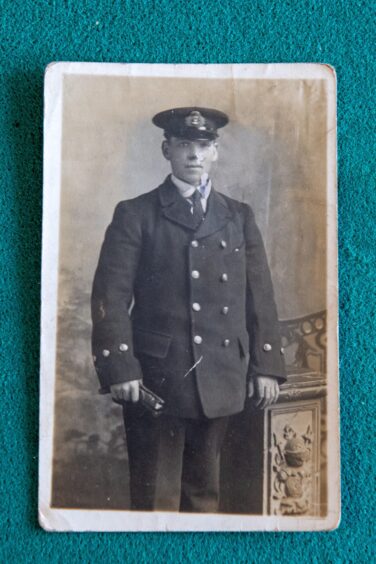
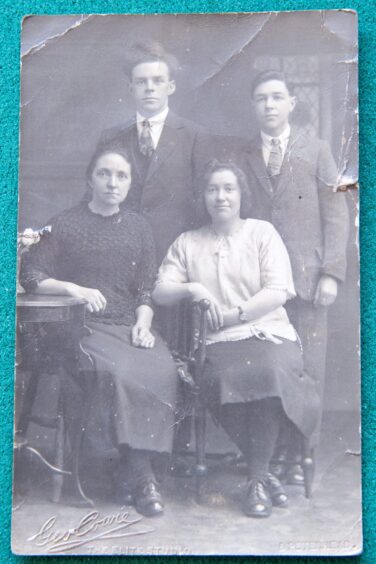
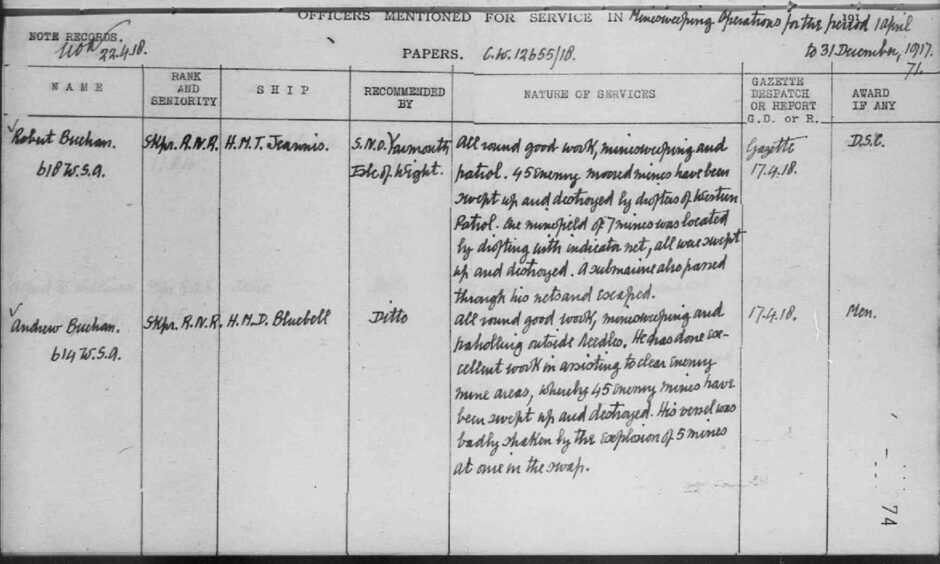
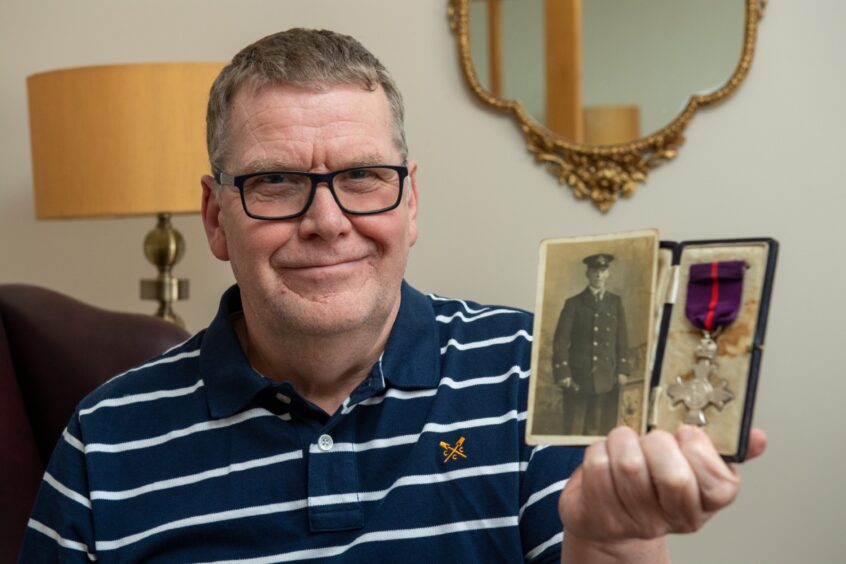
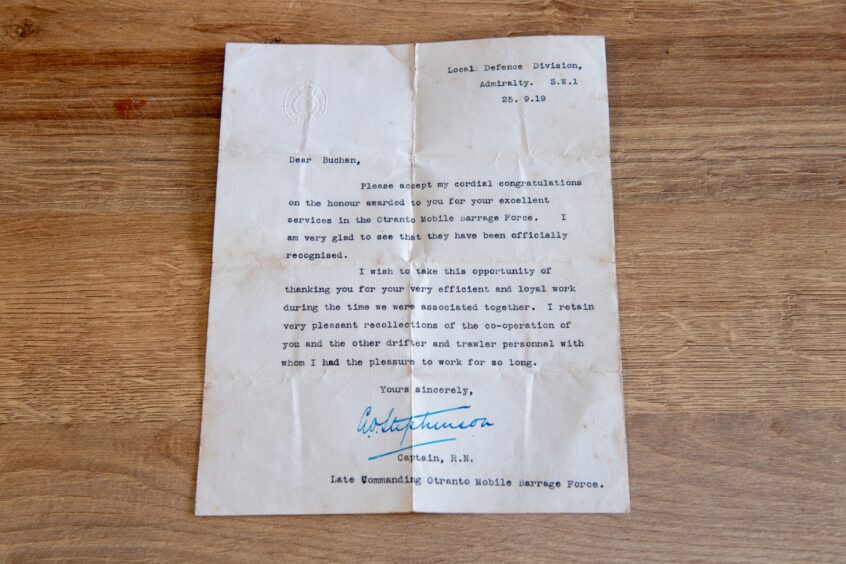
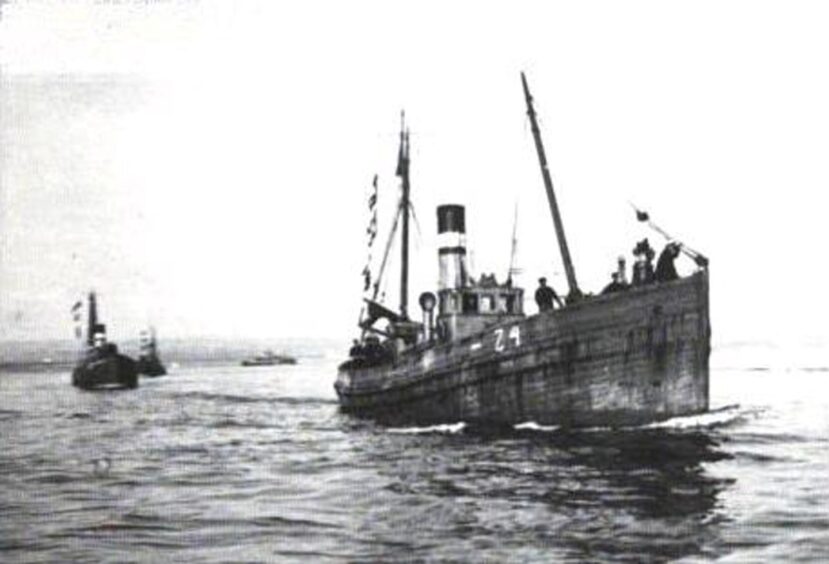

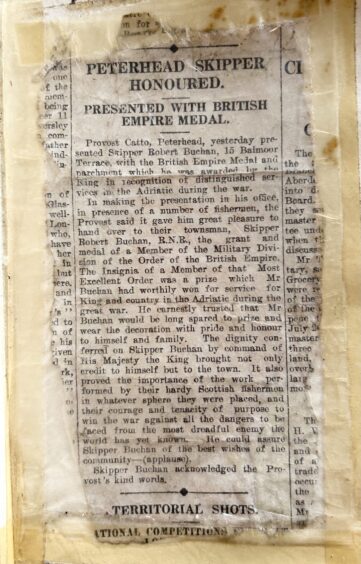
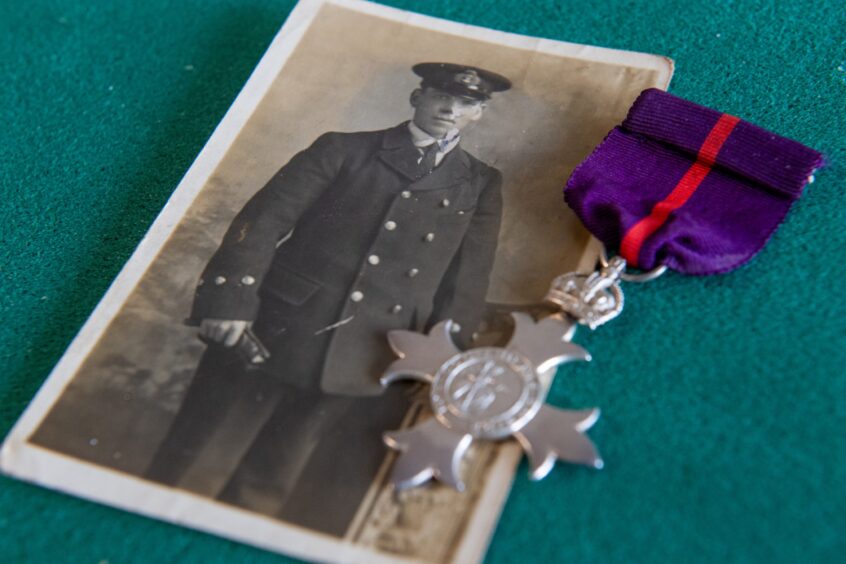
Conversation